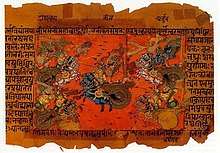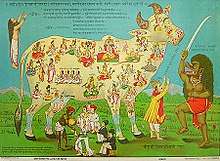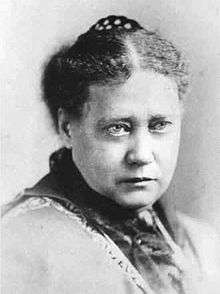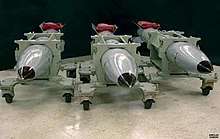
A manuscript illustration (18th c.?) of the Battle of Kurukshetra, fought between the Kauravas and the Pandavas, recorded in the Mahabharata Epic.

The Cow with 84 deities...

We are in the Kali Yuga and its fatal influence is a thousand-fold more powerful in the West than it is in the East; hence the easy preys made by the Powers of the Age of Darkness [evil] in this cyclic struggle, and the many delusions under which the world is now laboring. ~H.P. Blavatsky
Maitreya corresponds to the Kalki Avatar in Hinduism (the "White Horse Avatar"—see the Revelation of St. John), and to the Messiahs of all nations. ~Helena Roerich

It is curious to see how prophetic in almost all things was the writer of Vishnu Purâna when foretelling to Maitreya some of the dark influences and sins of this Kali Yuga....The “barbarians” will be masters of the banks… kings of churlish spirit, violent temper, and ever addicted to falsehood and wickedness... Property alone will confer rank...passion will be the sole bond of union between the sexes... ~H.P. Blavatsky

In the PuranasIt was predicted that toward the end of Kali Yuga humanity would be driven to acts of madness... But how do you explain to people that their leaders and their teachers are insane? ...such mental confusion fully corresponds with the end of Kali Yuga ~Agni Yoga, 285, Supermundane, (1938) [image: Nuclear Bombs

Sauti recites the slokas of the Mahabharata.
The Mahābhārata is an Sanskrit epic poem written over an extended period from the 4th century BC to the 2nd century AD. The fullest form of The Mahābhārata contains about 2,000,000 words, more than the totals of both the King James version of the Bible and the works of Shakespeare. It is sometimes said to be the longest poem in world literature. Quotations are cited from the translation by J. A. B. van Buitenen et al. (Chicago: Chicago University Press, 1980–), to which page numbers also refer.
Quotes
- निर्वनो वध्यते व्याघ्रो निर्व्याघ्रं छिद्यते वनम् ।
तस्माद्व्याघ्रो वनं रक्षेद्वनं व्याघ्रं च पालयेत् ॥ - nirvanō vadhyatē vyāghrō nirvyāghraṁ chidyatē vanam
tasmādvyāghrō vanaṁ rakṣēdvanaṁ vyāghraṁ ca pālayēt.
- अक्रोधेन जयेत्क्रोधमसाधुं साधुना जयेत् ।
जयेत्कदर्यं दानेन जयेत्सत्येन चानृतम् ॥ - akrōdhēna jayētkrōdha-masādhuṁ sādhunā jayēt
jayētkadaryaṁ dānēna jayētsatyēna cānṛtam.- Anger must be conquered by forgiveness; and the wicked must be conquered by honesty; the miser must be conquered by liberality, and falsehood must be conquered by truth.
- 5.39.58 English Sanskrit; Compare: Dhammapada verse 5 and verse 223
- Anger must be conquered by forgiveness; and the wicked must be conquered by honesty; the miser must be conquered by liberality, and falsehood must be conquered by truth.
- यथा च स्वगृहस्थः श्वा व्याघ्रं वनगतं भषेत् ।
तथा त्वं भषसे कर्ण नरव्याघ्रं धनंजयम् ॥ - yathā ca svagṛhasthaḥ śvā vyāghraṁ vanagataṁ bhaṣēt
tathā tvaṁ bhaṣasē Karṇa naravyāghraṁ Dhanañjayam.
- सृगालोऽपि वने कर्ण शशैः परिवृतो वसन् ।
मन्यते सिंहमात्मानं यावत्सिंहन पश्यति ॥ - sṛgālōpi vanē Karṇa śaśaiḥ parivṛtō vasan
manyatē sinhamātmānaṁ yāvatsinhana paśyati.
- धर्मादर्थश्च कामश्च स किमर्थं न सेव्यते
- dharmādarthaśca kāmaśca sa kimarthaṁ na sēvyatē
- Non-violence is the highest ethics/righteousness, and righteous violence. (Ahiṁsa paramo dharma, dharma hiṁsa tathaiva ca)
- Quoted from Elst, Koenraad. Hindu Dharma and the Culture Wars. (2019). New Delhi : Rupa. Chapter 9. Pluralism in Ila's city
.jpg)
People will become atheists and thieves... the kings of the earth, with hearts wedded to sin without knowledge and always boastful of their wisdom, will challenge one another... ~Mahabharata, Book 3, Vana Parva

the Kshatriyas [military caste] also towards the end of such a period will become the thorns of the earth. And filled with avarice and swelling with pride and vanity... And attacking and repeating their attacks upon the good and the honest, and feeling no pity for the latter... ~Mahabharata, Book 3, Vana Parva
.jpg)
And cowards will have the reputation of bravery and the brave will be cheerless like cowards...

When the end of the Yuga comes, men abandoning the countries and directions and towns and cities of their occupation, will seek for new ones, one after another. And people will wander over the earth, uttering, 'O father, O son', and such other frightful and rending cries. ~Mahabharata, Book 3, Vana Parva
Sabha Parva
- Discontent is the root of fortune.
- Sub-parva 27, sect. 50; vol. 2, p. 122.
- When the Gods deal defeat to a person, they first take his mind away, so that he sees things wrongly.
- Sub-parva 28, sect. 72; vol. 2, p. 167.
Vana Parva
- With gentleness one defeats the gentle as well as the hard; there is nothing impossible to the gentle; therefore the gentle is the more severe.
- Sub-parva 31, sect. 29; vol. 2, p. 277.
- A gray head does not make an elder. The Gods know him to be an elder who knows, be he a child. Not by years, not by gray hairs, not by riches or many relations did the seers make the Law: "He is great to us who has learning."
- Sub-parva 33, sect. 133; vol. 2, p. 476.
- Be he ever so wise and strong, wealth confounds a man. In my view, anyone living in comfort fails to reason.
- Sub-parva 36, sect. 178; vol. 2, p. 566.
Book 3, Vana Parva
Kali Yuga Predictions
- O thou foremost of all speakers, O Muni of Bhrigu's race, that which we have heard from thee about the destruction and re-birth of all things at the end of the Yuga, is, indeed, full of wonder! I am filled with curiosity, however, in respect of what may happen in the Kali age. When morality and virtue will be at an end, what will remain... tell me all in detail, O Muni, for all that thou narratest is varied and delightful...(Section CLXXXIX, p. 387)
- Thus addressed, that foremost of Munis began his discourse... listen to me as I narrate the future history of the world during the sinful age. O bull of the Bharata race, in the Krita age, everything was free from deceit and guile and avarice and covetousness; and morality like a bull was among men, with all the four legs complete... (Section CLXXXIX, p. 387)
- In the dark age (of Kali)... morality mixed with three parts of sin liveth by the side of men... men in general will deceive their fellows... And men with false reputation of learning will... cause truth to be contracted and concealed. And in consequence of the shortness of their lives they will not be able to acquire much knowledge. And in consequence of the littleness of their knowledge, they will have no wisdom. And for this, covetousness and avarice will overwhelm them all. And wedded to avarice and wrath and ignorance and lust men will entertain animosities towards one another...(Section CLXXXIX, p. 387)
- And the lowest orders of men will rise to the position of the intermediate ones, and those in intermediate stations will, without doubt, descend to the level of the lowest ones... And towards that period, even they that are always observant of vows, will become covetous... People will become atheists and thieves... the kings of the earth, with hearts wedded to sin without knowledge and always boastful of their wisdom, will challenge one another... (Section CLXXXIX, p. 388)
- And the Kshatriyas [military caste] also towards the end of such a period will become the thorns of the earth. And filled with avarice and swelling with pride and vanity... And attacking and repeating their attacks upon the good and the honest, and feeling no pity for the latter.. the Kshatriyas will, O Bharata, rob these of their wives and wealth... (Section CLXXXIX, p. 388)
- And no one will ask for a girl (for purposes of marriage) and no one will give away a girl (for such purposes), but the girls will themselves choose their lords, when the end of the Yuga comes... And the kings of the earth with souls steeped in ignorance, and discontented with what they have, will at such a time, rob their subjects by every means in their power..., the right hand will deceive the left; and the left, the right.... And men with false reputation of learning will contract Truth and the old will betray the senselessness of the young, and the young will betray the dotage of the old. (Section CLXXXIX, p. 388)
- And cowards will have the reputation of bravery and the brave will be cheerless like cowards... men will cease to trust one another... full of avarice... sin will increase and prosper, while virtue will fade and cease to flourish. And Brahmanas and Kshatriyas and Vaisyas will disappear, leaving, O king, no remnants of their orders... jealousy and malice will fill the world. And no one will, at that time, be a giver (of wealth or anything else) in respect to any one else... (Section CLXL, p. 392)
- Men will... become omnivorous without distinction, and cruel in all their acts... urged by avarice, men will, at that time, deceive one another when they sell and purchase. And when the end of the Yuga comes, urged by their very dispositions, men will act cruelly, and speak ill of one another.. people will, without compunction, destroy trees and gardens. (Section CLXL, p. 392)
- And men will be filled with anxiety as regards the means of living... overwhelmed with covetousness, men will kill... and enjoy the possessions of their victims... And when men become fierce and destitute of virtue and carnivorous and addicted to intoxicating drinks, then doth the Yuga come to an end... (Section CLXL, p. 392)
- Friends and relatives and kinsmen will perform friendly offices for the sake of the wealth only that is possessed by a person...When the end of the Yuga comes, men abandoning the countries and directions and towns and cities of their occupation, will seek for new ones, one after another. And people will wander over the earth, uttering, 'O father, O son', and such other frightful and rending cries. (Section CLXL, p. 392)
After Kali Yuga
- And when those terrible times will be over, the creation will begin anew. And men will again be created and distributed..and about that time, in order that men may increase, Providence, according to its pleasure, will once more become propitious... And the clouds will commence to shower seasonably, and the stars and stellar conjunctions will become auspicious. And the planets, duly revolving in their orbits, will become exceedingly propitious. And all around, there will be prosperity and abundance and health and peace....(Section CLXL, p. 392)
- And commissioned by Time, a Brahmana of the name of Kalki will take his birth. And he will glorify Vishnu and possess great energy, great intelligence, and great prowess.... vehicles and weapons, and warriors and arms, and coats of mail will be at his disposal as soon as he will think of them. And he will be the king of kings, and ever victorious with the strength of virtue. And he will restore order and peace in this world crowded with creatures and contradictory in its course. (Section CLXL, p. 392)
- And that blazing Brahmana of mighty intellect... will be the Destroyer of all, and will inaugurate a new Yuga. And surrounded by the Brahmanas, that Brahmana will exterminate all the mlecchas wherever those low and despicable persons may take refuge. Markandeya continued, Having exterminated the thieves and robbers... and having established anew the blessed rectitude ordained by the Self-create, Kalki, of sacred deeds and illustrious reputation... the people of this earth will imitate his conduct... there will be prosperity everywhere (on earth). And as the countries of the earth will one after another be subjugated... (Section CLXL, p. 392)
- Vaisampayana continued, "Hearing these words of Markandeya, the royal head of the Kurus... spoke... 'O muni, if I am to protect my subjects, to what course of conduct should I adhere? And how should I behave so that I may not fall away from the duties of my order?' Markandeya, hearing this, answered, 'Be merciful to all creatures, and devoted to their good. Love all creatures, scorning none. Be truthful in speech, humble, with passions under complete control, and always devoted to the protection of thy people. Practise virtue and renounce sin, and worship thou the manes and the god and whatever thou mayst have done from ignorance or carelessness, wash them off and expiate them by charity. (Section CLXL, p. 393)
- Renouncing pride and vanity, be thou possessed to humility and good behaviour. And subjugating the whole earth, rejoice thou and let happiness be thine. This is the course of conduct that accords with virtue. I have recited to thee all that was and all that will be regarded as virtuous. There is nothing appertaining to the past or the future that is unknown to thee. Therefore, O son, take not to heart this present calamity of thine. They that are wise are never overwhelmed when they are persecuted by Time. O thou of mighty arms, the very dwellers of heaven cannot rise superior to Time. Time afflicts all creatures. (Section CLXL, p. 393)
Udyoga Parva
as translated by J. A. B. van Buitenen
- The poor always eat better: hunger sweetens their dishes, and that is rare among the rich. It is generally found in the world that the rich have no appetite, but the poor, O Indra of kings, digest even wood.
- Sub-parva 51, sect. 34; vol. 3, pp. 263-4.
- The intoxication with power is worse than drunkenness with liquor and such, for he who is drunk with power does not come to his senses before he falls.
- Sub-parva 51, sect. 34; vol. 3, p. 264.
- People are plagued by their senses if they act without restraint to attain their desires. ... If one is dragged along as the victim of his natural five senses, his adversities wax like the moon in the bright fortnight.
- 5(51)34:53, p. 264
- A chariot, king, is a person's body:
The soul is the driver, the senses his horses;
Undistracted by his fine horses a driver
Who is skilled rides happily, if they are trained.- 5(51)34:57, p. 264
- Senses out of control suffice to bring one to grief, as untrained and disobedient horses bring a driver to grief on the road. A fool who, guided by his senses, sees profit arising from the unprofitable and the unprofitable from profit mistakes misery for happiness.
- 5(51)34:58, p. 264
- Do not do to another what is disagreeable to yourself: this is the summary Law.
- Sub-parva 51, sect. 39; vol. 3, pp. 281-2.
- See also Golden Rule.
- Once war has been undertaken, no peace is made by pretending there is no war.
- Sub-parva 54, sect. 86; vol. 3, p. 365.
About the Mahabharata
- In the Mahabharata, the ceremony for the oath of a new king includes the admonition: 'Be like a garland-maker, O king, and not like a charcoal burner.' The garland symbolizes social coherence; it is a metaphor for dharmic diversity in which flowers of many colors and forms are strung harmoniously for the most pleasing effect. In contrast, the charcoal burner is a metaphor for the brute-force reduction of diversity into homogeneity, where diverse living substances are transformed into uniformly lifeless ashes.
- Indras Net by Rajiv Malhotra, p.10., 1st ed.
- It is precisely due to the lack of the knowledge of cultural subtleties on the part of the mere textual scholars…that their analyses sound worthless and useless to us. A profound literature like the Mahābhārata must essentially be understood by being firmly grounded in the Sanātana-dharma of Bhārata.
See also
- Duryodhana, the primary antagonist in the Mahabharata
External links
- Quotes from Mahabharata : A collection of wise sayings chosen from Mahabharat.
This article is issued from
Wikiquote.
The text is licensed under Creative
Commons - Attribution - Sharealike.
Additional terms may apply for the media files.